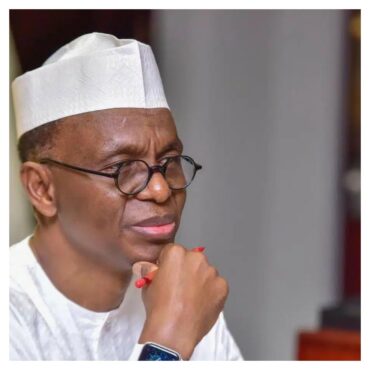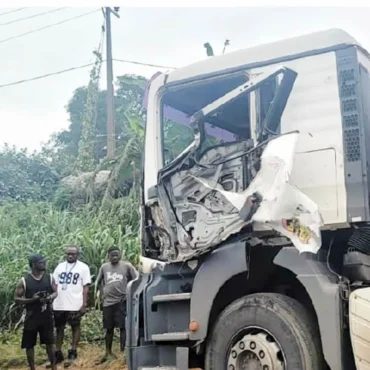Guinea-Bissau was thrust into a new phase of political turmoil on Thursday after the military installed a senior commander to lead the country for a one-year transitional period. The move came less than 24 hours after soldiers seized power, arrested the sitting president, and abruptly halted the release of election results that were expected to secure him another term in office.
By early morning in the capital, Bissau, soldiers maintained a heavy presence around the presidential palace and key administrative buildings. Armoured vehicles and patrol teams lined the main boulevard leading to the palace, where intense gunfire had echoed throughout the previous day as the military moved to take control. Despite the tension, a few residents cautiously returned to the streets, walking past security checkpoints manned by armed troops.
At the centre of the political upheaval is General Horta N’Tam, the long-serving army chief of staff, who was sworn in during a brief but tightly guarded ceremony at military headquarters. Surrounded by dozens of soldiers in full combat gear, N’Tam declared that he had assumed leadership of the High Command and would oversee the country’s affairs during the transitional period. Addressing reporters afterwards, he insisted that the military’s actions were necessary to “keep the nation from descending into chaos” and to prevent what he described as attempts to manipulate the democratic process.
According to him, the military had gathered “sufficient indications” that the country’s institutions were under threat and that urgent intervention was required. He emphasised that the coming months would demand cooperation from citizens, political actors, and state institutions to restore stability and rebuild trust in the system.
Guinea-Bissau, a small nation geographically wedged between Senegal and Guinea, has endured decades of political volatility. Since gaining independence from Portugal in 1974, it has suffered multiple coups, attempted coups, and prolonged episodes of military influence over civilian governance. Power struggles among political elites, combined with the country’s role as a major transit hub for international drug traffickers, have repeatedly undermined efforts to build a stable democratic system.
The latest crisis erupted on Wednesday afternoon when a group of senior officers announced that they had taken “total control” of state institutions. They declared that the ongoing electoral process was suspended indefinitely, making it impossible for the results of last Sunday’s presidential vote to be announced. Prior to the coup, incumbent President Umaro Sissoco Embaló had been widely expected to win re-election.
General Denis N’Canha, who oversees the presidential military office, stated that the security forces had acted after uncovering what he called a complex plan allegedly orchestrated by criminal networks. He claimed that “drug lords” were involved in a scheme to smuggle weapons into the country to influence the political process and disrupt constitutional order. He further explained that the military had imposed a nationwide curfew, halted all media broadcasts, and shut down land, air, and sea borders to prevent any external interference.
By Thursday, another senior commander, General Lassana Mansali, announced the reopening of the borders, though security checks remained heightened. Meanwhile, President Embaló was being held at the general staff headquarters. Military officials insisted he was being treated well. Reports also indicated that several high-ranking officials, including the interior minister and the chief of staff of the presidency, had been detained.
Opposition figures were not spared. Domingos Simões Pereira, a prominent opposition leader who had previously been prevented from contesting the election by a court ruling, was taken into custody on Wednesday, according to individuals close to him. His arrest has raised concerns that the military intends to sideline both the ruling elite and rivals who could challenge its authority.
International reaction has been swift. Regional organisations expressed alarm at the sudden collapse of constitutional order. The leadership of the West African regional bloc reaffirmed its outright rejection of any military takeover and reiterated its long-standing policy of zero tolerance toward unconstitutional changes of government. The United Nations also voiced worry, with its leadership calling for restraint and urging all parties to avoid deepening the crisis. Portugal, the country’s former colonial ruler, urged calm and warned against actions that could lead to violence or further destabilisation.
Civil society groups have also raised concerns. Advocates for press freedom criticised the decision to suspend all media operations, calling it a severe infringement on citizens’ right to access information, particularly during moments of national upheaval. They argued that the blackout would leave the public vulnerable to speculation and misinformation at a time when transparent communication is critical.
The current upheaval adds Guinea-Bissau to the growing list of West African nations that have experienced military interventions in recent years. From Mali and Niger to Burkina Faso and Guinea, the region has faced a surge of coups driven by political fractures, security challenges, and public frustration with governance.
For Guinea-Bissau, the coming year under military stewardship remains uncertain. While the new leadership promises to stabilise the nation and protect democracy, citizens and international observers remain wary, aware of the country’s long history of political turbulence. With key leaders detained, institutions suspended, and a transitional authority now in place, the path back to civilian governance is unclear — and the stakes have rarely been higher.






Post comments (0)